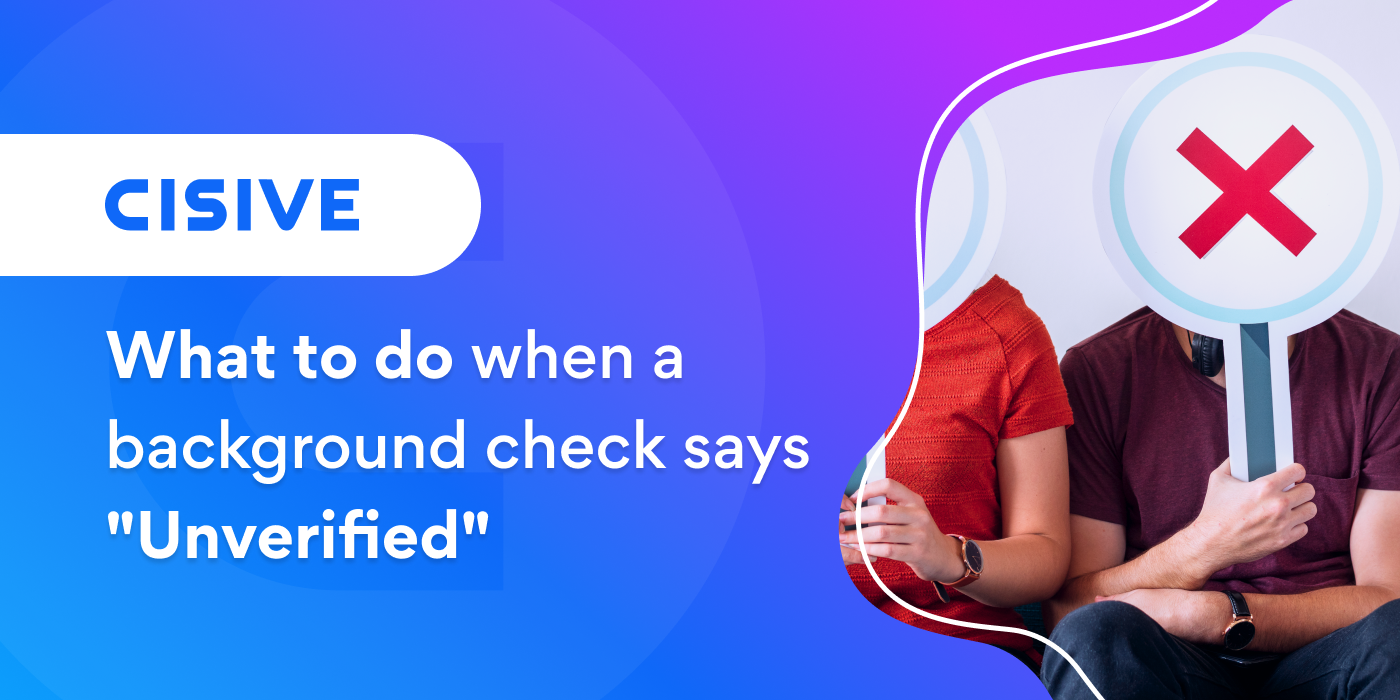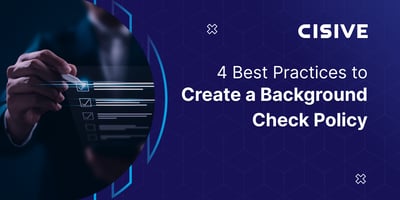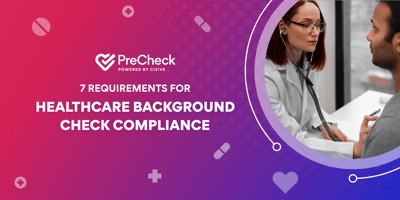

As an HR or talent management pro, you know background checks are valuable in protecting your...

Cisive’s compliance expert, Michael Kendrick, discusses how to interpret background screening results that return as “unverified.”
Consumer Reporting Agencies (CRAs) are held to an extremely high standard of accuracy when it comes to reporting information in any type of consumer report. While there are many types of consumer reports that are used in business decisions today, the two most common are the typical “credit report” used in financial decisions and the “background check” used in employment decisions.
In the case of background screening reports, used for employment related decisions, multiple types of searches might be part of the screening process. These often include several types of “verification” searches, which may include things like: Professional Licensing, Education, Previous Employment, etc.
Verification searches are unique in that they verify the information provided as being accurate/consistent as compared with the source information.
The verification results that are reported back to the company will be commonly shown as:

It is important to note: “Unverifiable” information should never be assumed to be negative, adverse, inaccurate, or untruthful, as provided by the applicant.
The result simply means that the screening agency was unable to verify the data as provided by the applicant. This can happen in almost any screening circumstance. Records and information can sometimes be physically destroyed (fires, floods, other natural disasters), electronically corrupted, even misplaced or misfiled.
In some instances, the scope of the verification can be contractually limited between the employer seeking the background check and the company providing the results - usually the CRA. This means that employers may only want certain types of employment verified, and this often excludes instances of “self-employment” or 1099/Independent Contractors. In these special circumstances, when self-employment information is submitted for verification, the proper result returned by the CRA would be: Unverified or Unable to Verify.
Many companies prefer for 1099/Independent Contractors “self-employment” to be evaluated by their internal Human Resource managers. This may sometimes include additional interviews or asking for supporting documentation directly from the prospective employee. Self-employment is common, but the ways for screening companies to accurately verify this type of employment is limited.
Prudent privacy and security standards should be followed with respect to any supplemental documentation that might be needed from someone who was previously self-employed. Therefore, the fewer hands involved in the transfer, storage, and evaluation of that data should be of paramount concern.

It is a common misperception in our modern, data-driven world to believe that everything can either be searched, verified, or confirmed, and while great strides to this effort have been made, there are still limits.
For example, even for law enforcement agencies using the most advanced “fingerprint identification” technology, the result of Unable to Verify is commonplace, particularly when/if matching prints have never been collected or the print provided for the comparison is of poor quality.
It is important for all companies to coordinate with their own Legal Counsel and HR Managers to develop clear procedural policies that demonstrate good faith hiring practices when background check content provided by an applicant/candidate cannot be verified through traditional screening practices.
Assuming a falsehood, or automatically using a result of a verification that was unable to be verified as a justification to deny access to an employment opportunity (an adverse action), would most likely be inconsistent with any acceptable hiring practices and may expose a company to a heightened risk of legal action.
Additionally, keep in mind that discrepancies in a verification should also not be presumed to be intentional. Remember, mistakes related to exact dates, spelling errors, name changes, changes in management, titles, etc., could all lead to minor discrepancies when verifying the information submitted by the candidate.
To make good hiring decisions, your human resource professionals need to be well-trained on how to evaluate all background check/screening results; empowering them to make rational and informed decisions will help protect your company from fraudulent applicants, while also providing a fair-minded, professional hiring experience.
Author: Michael Kendrick
Bio: Senior Manager of Corporate Compliance at Cisive.
Let's Connect on LinkedIn
As an HR or talent management pro, you know background checks are valuable in protecting your...

While traditional background checks are a necessary first step in hiring, they only offer a...

Filling healthcare roles with qualified, compassionate professionals can present a challenge in the...